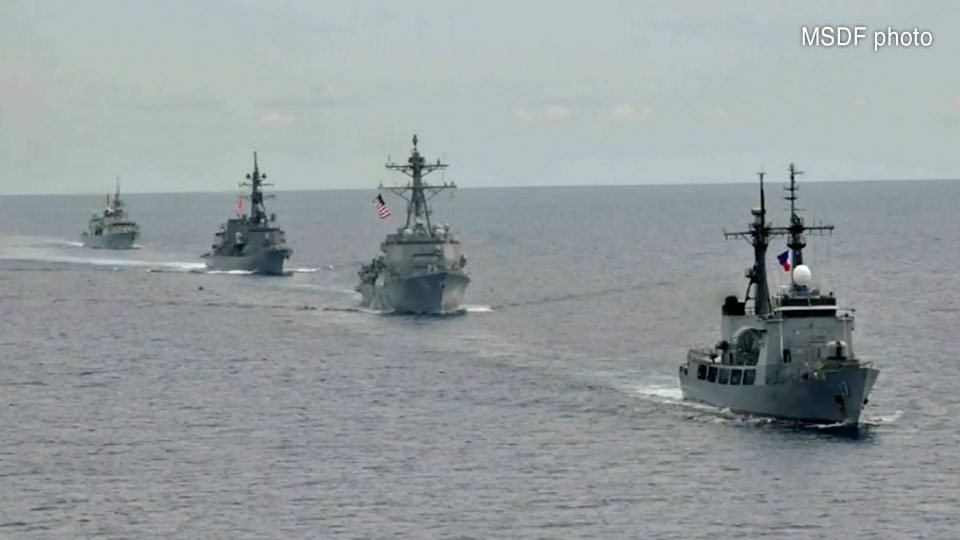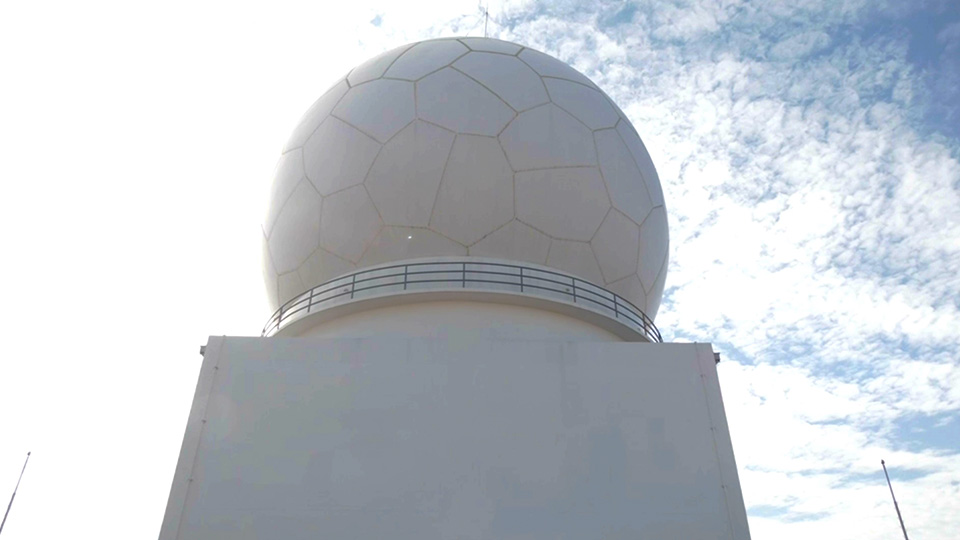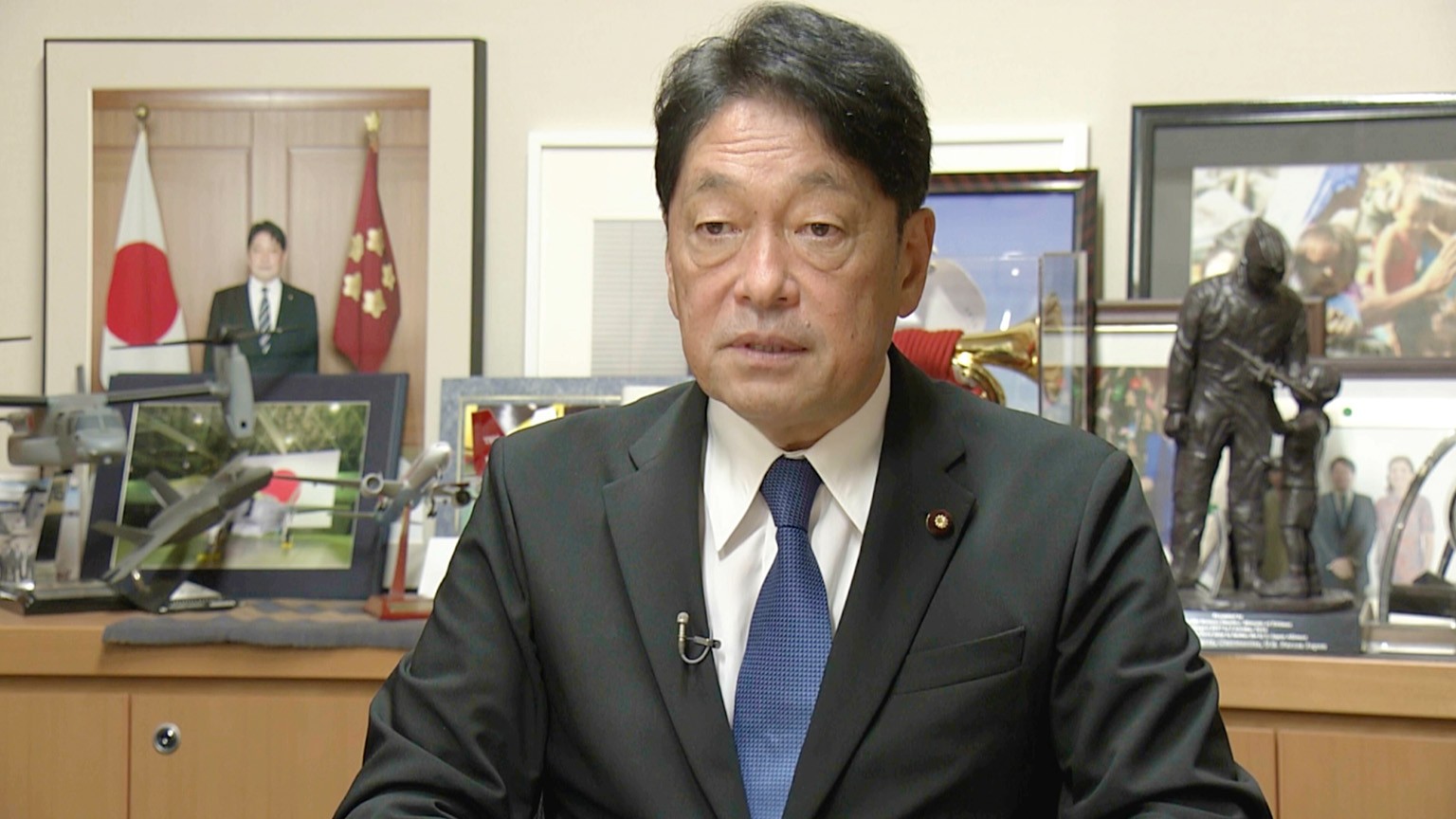Masuda Tsuyoshi: How does the Japanese government view the Philippines?
Onodera Itsunori: First of all, China views Japan's Okinawa islands, Taiwan and the Philippines all as part of what it calls the "first island chain." All are being threatened by China in one way or another. Japan and the Philippines are both democratic, maritime nations. So I think it's important for them to be on the same page.
Masuda: You visited the Philippines in June and met high-ranking officials. How does the Marcos administration perceive the threat from China and what level of urgency did officials express?
Onodera: They have a very strong sense of crisis. And not just the senior officials. There's strong resentment towards China among the general public. About a week before my visit, a Chinese ship collided with a small vessel from the Philippines in the South China Sea. One member of the Philippines crew lost his finger in the accident. The incident was covered quite widely. I happened to be there when they were holding a public hearing about it, with President Marcos attending, so I think it was a time of heightened caution with regards to China.
Masuda: What happened in your meeting with the officials there?
Onodera: First of all, I told them that China's report on the incident is unacceptable for Japan. They told me that the Philippines will continue to protect these waters as part of its country. They said that the Philippines wants Japan, the US and Australia to cooperate in patrolling the areas as China's actions in the South China Sea are becoming extremely intense.
Masuda: What sort of steps do they want Japan to take?
Onodera: We already provide the Philippines with coast guard vessels and the kind of radar that our Self-Defense Forces use. They said they want and need more of these. There was also a discussion of anti-aircraft missiles and other things that together form a whole air-defense system.
Masuda: Is there any talk of jointly using the data from radar provided by Japan?
Onodera: The Philippines will be placing a lot of radar systems in the South China Sea in the future. The information they collect will be very useful for Japan because the seas are connected. On the other hand, Japan has various data from the East China Sea. Providing it to the Philippines will be beneficial for both countries to understand the full situation. We have confirmed that such cooperation would be possible. In particular, the radar will be the same types we use in Japan, so in that sense, I think it would be easier to cooperate.
Masuda: Do you think Japan and the Philippines should increase cooperation even more?
Onodera: We have to, in order to improve the capabilities of the Philippines. If it strengthens its ability to protect its own waters, that will be beneficial to Japan. To that end, Japan has provided training aircraft from the Self-Defense Forces, and now we're sending coastal surveillance ships.
The large port known as Subic Bay (on the west coast of Luzon Island) has a shipyard, but the Philippines doesn't currently have the capital or technology (to build ships there). If Japan cooperates on designing ships for coastal surveillance, the Philippines would be able to strengthen its capabilities.

Additionally, ships could be jointly developed and produced, so the Philippines could export them to any other ASEAN country that wants to protect its own waters. The Philippines would acquire industrial capabilities, and if more countries can protect the South China Sea on their own, that would be beneficial for Japan, too.
There is also a large air base called Clark. It was originally built by the US, but although it has a very wide airfield, there's a lot of undeveloped land around it. It's being used as a tourist attraction right now, but if it can become a place for aircraft production or maintenance, it could become a core of the Philippines' own industry. And joint development would make it possible to transfer equipment to other Asian countries. I think it is a very promising country as a partner.
Masuda: How did the Philippines react to the Japanese offer?
Onodera: I think it was very grateful. The Philippines has a strong service sector but it's a country in which the manufacturing industry has not yet taken root. But the average age there is in the mid-20s, so its population is expected to grow. Japan has roughly the same population but we are struggling with an aging society. Japan has technologies and capital, so by teaming up, we can build on each other's strengths. I'm sure we will become good partners in the future.
Masuda: Japan is developing a new fighter jet with Britain and Italy, and I believe there is talk of exporting it to third countries. Is there any possibility the Philippines could receive these?
Onodera: I was given a chance to fly in one of the Philippines' fighter jets. I felt it was old. There are 15 aircraft but fewer than half are in operation. They want new ones.
But it will be 14 or 15 years until the fighter jets you mention can be deployed. So in the meantime, the Philippines will probably introduce a next-generation jet from the US or other countries. But when the Philippines grows economically and wants fifth- or sixth-generation aircraft, I think the country will be an important partner for Japanese defense equipment.
Actually, the Philippines, the US and Japan have finally been able to conduct defense drills together. The Philippines certainly wants to conduct more drills with Japan. In that case, we need an RAA (Reciprocal Access Agreement) to ensure this goes smoothly.
Japan's radar is evaluated so highly because the country doesn't just sell the equipment but provides maintenance. As with the Philippines, some countries have bought equipment but cannot maintain it when it breaks down or needs new parts. Japan is always able to maintain it and raise the operation rate. In that respect, Japan will be a good partner for the Philippines.

Masuda: If tensions between China and the Philippines ever did escalate into a military confrontation in the South China Sea, what action should Japan take?
Onodera: First of all, if there is a clash, I think the international community would put pressure on whichever side is deemed to be in the wrong under international law. If the Philippines is judged to be in the right, the US, Japan and Australia would provide support to the Philippines. Japan wouldn't view it as someone else's problem.
We are both in that "first island chain," under similar pressure, so from that perspective, we are in the same position.


